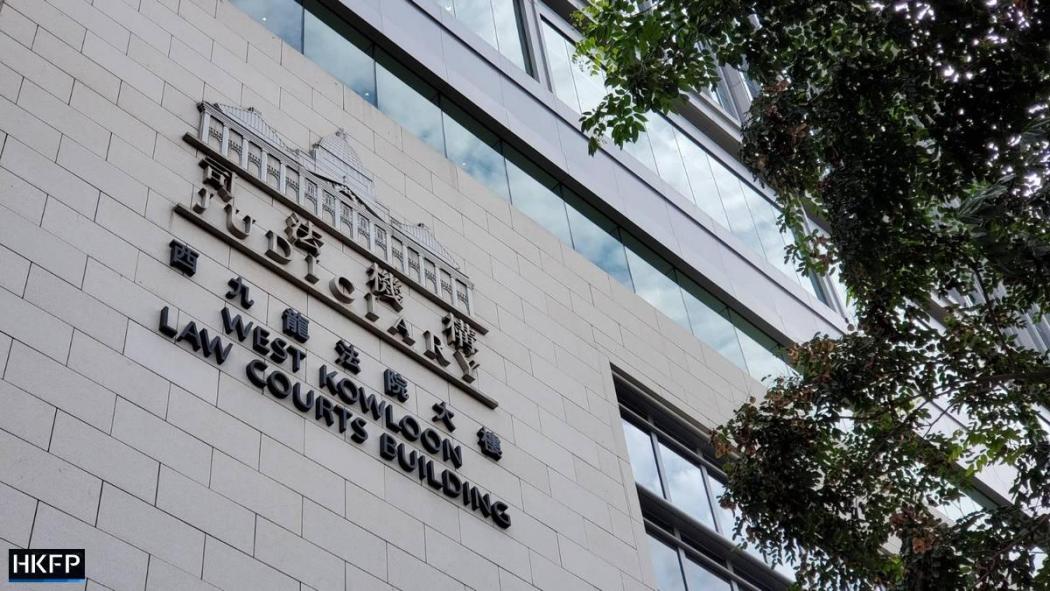A barrister on trial for inciting Hongkongers to take part in a banned Tiananmen Massacre vigil said she had merely urged people not to forget the 1989 bloodshed and the court should not engage in “the trial of speech.”
Chow Hang-tung, vice-chair of the now-defunct Hong Kong Alliance in Support of Patriotic Democratic Movements of China which organised the vigils, also said her own arrest and the ban on the Victoria Park event had breached her constitutional rights.

Chow, who is already in custody awaiting trial on a separate charge under the national security law, was presenting her closing arguments at West Kowloon Magistrates’ Courts on Thursday in front of magistrate Amy Chan.
Chow is accused of inciting others to take part in an unauthorised assembly, after the police banned this year’s Tiananmen Massacre vigil for the second year in a row, citing Covid-19 health concerns.
The 36-year-old is accused of incitement by publishing two articles on her Facebook account and in Ming Pao newspaper.
Wearing a black blazer and a black t-shirt, Chow – who was defending herself – clutched a large bundle of paper as she entered the courtroom to stand at the defence table, instead of the dock.
Her arrest and prosecution, she submitted, represented a disproportional limitation of her rights. And the police, by rejecting the Alliance’s application to hold the vigil in June, restricted her freedom of assembly.
Her arrest and detention, which prevented her from personally commemorating the event in public, curbed her freedom of expression, and prosecuting her based on her articles restricted her freedom of speech, Chow argued.
Chow was detained in the early morning of June 4, and held in police custody until she was released on bail on June 6.

The 36-year-old said her arrest and prosecution was unreasonable and excessive and failed to strike a balance between the benefits to society and individual rights.
“There was a political reason…to erase all memories of June 4th,” said Chow.
The Tiananmen Massacre on June 4, 1989 ended months of student-led demonstrations in China. It is estimated that hundreds, perhaps thousands, of people died when the People’s Liberation Army was deployed to crack down on protesters in Beijing.
‘The gate of literary inquisition’
Prosecutor Fanny Wong argued that the aim of Chow’s arrest was to enforce the law. When the legislation criminalised some types of speech, such as incitement, arrests under such laws were constitutional.
The prosecution said the police ban on this year’s vigil was legitimate. Chow’s act of incitement was committed when her articles were published, and it was irrelevant whether there had in fact been a public meeting that evening, or whether people had turned up.
Chow argued that the main aim of her articles was to “incite others not to forget June 4th” and not to encourage the actual act of going to Victoria Park that night.
“The court should not drag itself into the trial of speech…it’s dangerous to open the gates of literary inquisition,” said the barrister.
The magistrate adjourned the case to January 4 when she will deliver a verdict, after hearing closing arguments from both sides.
As Chow was packing up her documents, spectators in the public gallery erupted in applause. “Hang in there!”, “Commemorating June 4th is not a crime,” “You did well, Chow Hang-tung,” were some of the shouted comments as Chow bowed towards the gallery .
Support HKFP | Policies & Ethics | Error/typo? | Contact Us | Newsletter | Transparency & Annual Report | Apps
Help safeguard press freedom & keep HKFP free for all readers by supporting our team

LATEST FROM HKFP
HKFP has an impartial stance, transparent funding, and balanced coverage guided by an Ethics Code and Corrections Policy.
Support press freedom & help us surpass 1,000 monthly Patrons: 100% independent, governed by an ethics code & not-for-profit.











